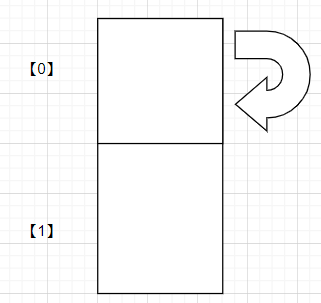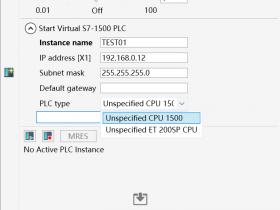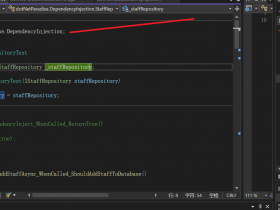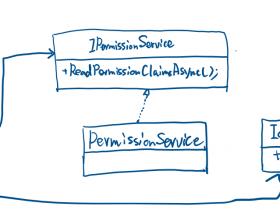- A+
一:背景
1.讲故事
今天是?的第四天,头终于不巨疼了,写文章已经没什么问题,赶紧爬起来写。
这个月初有位朋友找到我,说他的程序出现了CPU爆高,让我帮忙看下怎么回事,简单分析了下有两点比较有意思。
-
这是一个安全生产的信息管理平台,第一次听说,我的格局小了。
-
这是一个经典的 CPU 爆高问题,过往虽有分析,但没有刨根问底,刚好这一篇就来问一下底吧。
话不多说,我们上 WinDbg 说话。
二:WinDbg 分析
1. 真的 CPU 爆高吗?
别人说爆高不算,我们得拿数据说话不是,验证命令就是 !tp。
0:085> !tp CPU utilization: 100% Worker Thread: Total: 40 Running: 26 Idle: 6 MaxLimit: 32767 MinLimit: 8 Work Request in Queue: 0 -------------------------------------- Number of Timers: 0 -------------------------------------- Completion Port Thread:Total: 1 Free: 1 MaxFree: 16 CurrentLimit: 1 MaxLimit: 1000 MinLimit: 8 从卦中看果然是被打满了,接下来可以用 ~*e !clrstack 观察各个线程都在做什么,稍微一观察就会发现有很多的线程卡在 FindEntry() 方法上,截图如下:

从图中可以看到,有 25 个线程都停在 FindEntry() 之上,如果你的经验比较丰富的话,我相信你马上就知道这是多线程环境下使用了非线程安全集合 Dictionary 造成的死循环,把 CPU 直接打爆。
按以往套路到这里就结束了,今天我们一定要刨到底。
2. 为什么会出现死循环
要知道死循环的成因,那就一定要从 FindEntry 上入手。
private int FindEntry(TKey key) { if (key == null) { ThrowHelper.ThrowArgumentNullException(ExceptionArgument.key); } if (buckets != null) { int num = comparer.GetHashCode(key) & 0x7FFFFFFF; for (int num2 = buckets[num % buckets.Length]; num2 >= 0; num2 = entries[num2].next) { if (entries[num2].hashCode == num && comparer.Equals(entries[num2].key, key)) { return num2; } } } return -1; } 仔细观察上面的代码,如果真有死循环肯定是在 for 中出不来,如果是真的出在 for 上,那问题自然在 next 指针上。
关于 Dictionary 的内部布局和解析 可以参见我的 高级调试训练营,这里我们就不细说了。
那是不是出在 next 指针上呢? 我们来剖析下方法上下文。
3. 观察 next 指针布局
为了方便观察,先切到 85 号线程。
0:085> ~85s mscorlib_ni!System.Collections.Generic.Dictionary<string,F2.xxx.ORM.SqlEntity>.FindEntry+0x8f: 00007ff8`5f128ccf 488b4e10 mov rcx,qword ptr [rsi+10h] ds:0000017f`39c07d00=0000017eb9ee00c0 0:085> !clrstack OS Thread Id: 0x4124 (85) Child SP IP Call Site 0000007354ebcc70 00007ff85f128ccf System.Collections.Generic.Dictionary`2[[System.__Canon, mscorlib],[System.__Canon, mscorlib]].FindEntry(System.__Canon) [f:ddndpclrsrcBCLsystemcollectionsgenericdictionary.cs @ 305] 接下来把 Dictionary 中的 Entry[] 中的 next 给展示出来,可以用 !mdso 命令。
0:085> !mdso Thread 85: Location Object Type ------------------------------------------------------------ RCX: 0000017eb9ee00c0 System.Collections.Generic.Dictionary`2+Entry[[System.String, mscorlib],[xx]][] RSI: 0000017f39c07cf0 System.Collections.Generic.Dictionary`2[[System.String, mscorlib],[xxx.xxx]] 0:085> !mdt -e:2 0000017eb9ee00c0 0000017eb9ee00c0 (System.Collections.Generic.Dictionary`2+Entry[[System.String, mscorlib],[xxx.xxx]][], Elements: 3, ElementMT=00007ff816cedc18) [0] (System.Collections.Generic.Dictionary`2+Entry[[System.String, mscorlib],[F2.xxx]]) VALTYPE (MT=00007ff816cedc18, ADDR=0000017eb9ee00d0) hashCode:0x0 (System.Int32) next:0x0 (System.Int32) key:NULL (System.__Canon) value:NULL (System.__Canon) [1] (System.Collections.Generic.Dictionary`2+Entry[[System.String, mscorlib],[F2.xxx]]) VALTYPE (MT=00007ff816cedc18, ADDR=0000017eb9ee00e8) hashCode:0x5aba4760 (System.Int32) next:0xffffffff (System.Int32) key:0000017f39c0ab50 (System.String) Length=20, String="xxxMessage_Select" value:0000017f39c0b5d0 (xxx.xxx.ORM.SqlEntity) [2] (System.Collections.Generic.Dictionary`2+Entry[[System.String, mscorlib],[F2.xxx]]) VALTYPE (MT=00007ff816cedc18, ADDR=0000017eb9ee0100) hashCode:0x65b6e27b (System.Int32) next:0x1 (System.Int32) key:0000017f39c09d58 (System.String) Length=20, String="xxxMessage_Insert" value:0000017f39c0ba50 (xxx.xxx.ORM.SqlEntity) 从卦中看也蛮奇葩的,只有三个元素的 Dictionary 还能死循环。。。如果你仔细观察会发现 [0] 项是一种有损状态,value 没值不说, next:0x0 可是有大问题的,它会永远指向自己,因为 next 是指向 hash 挂链中的下一个节点的数组下标,画个图大概是这样。

接下来我们验证下是不是入口参数不幸进入了 [0] 号坑,然后在这个坑中永远指向自己呢?要想寻找答案,只需要在 FindEntry 的汇编代码中找到 int num = comparer.GetHashCode(key) & 0x7FFFFFFF; 中的 num 值,看它是不是 0 即可。
0:085> !U /d 00007ff85f128ccf preJIT generated code System.Collections.Generic.Dictionary`2[[System.__Canon, mscorlib],[System.__Canon, mscorlib]].FindEntry(System.__Canon) Begin 00007ff85f128c40, size 130. Cold region begin 00007ff85ff07ff0, size 11 ... f:ddndpclrsrcBCLsystemcollectionsgenericdictionary.cs @ 303: 00007ff8`5f128c6f 488b5e18 mov rbx,qword ptr [rsi+18h] 00007ff8`5f128c73 488b0e mov rcx,qword ptr [rsi] 00007ff8`5f128c76 488b5130 mov rdx,qword ptr [rcx+30h] 00007ff8`5f128c7a 488b2a mov rbp,qword ptr [rdx] 00007ff8`5f128c7d 4c8b5d18 mov r11,qword ptr [rbp+18h] 00007ff8`5f128c81 4d85db test r11,r11 00007ff8`5f128c84 750f jne mscorlib_ni!System.Collections.Generic.Dictionary<string,xxx.SqlEntity>.FindEntry+0x55 (00007ff8`5f128c95) 00007ff8`5f128c86 488d154d2f1800 lea rdx,[mscorlib_ni+0x68bbda (00007ff8`5f2abbda)] 00007ff8`5f128c8d e8ce44f3ff call mscorlib_ni+0x43d160 (00007ff8`5f05d160) (mscorlib_ni) 00007ff8`5f128c92 4c8bd8 mov r11,rax 00007ff8`5f128c95 488bcb mov rcx,rbx 00007ff8`5f128c98 488bd7 mov rdx,rdi 00007ff8`5f128c9b 3909 cmp dword ptr [rcx],ecx 00007ff8`5f128c9d 41ff13 call qword ptr [r11] 00007ff8`5f128ca0 8bd8 mov ebx,eax 00007ff8`5f128ca2 81e3ffffff7f and ebx,7FFFFFFFh ... 0:085> ? ebx Evaluate expression: 957083499 = 00000000`390bef6b 0:085> ? 0n957083499 % 0n3 Evaluate expression: 0 = 00000000`00000000 从汇编代码中分析得出,num 是放在 ebx 寄存器上,此时 num=957083499,再 %3 之后就是 0 号坑,大家再结合源代码,你会发现这里永远都不会退出,永远都是指向自己,自然就是死循环了。
3. .NET6 下的补充
前段时间在整理课件时发现在 .NET6 中不再傻傻的死循环,而是在尝试 entries.Length 次之后还得不到结束的话,强制抛出异常,代码如下:
internal ref TValue FindValue(TKey key) { uint hashCode2 = (uint)comparer.GetHashCode(key); int bucket2 = GetBucket(hashCode2); Entry[] entries2 = _entries; uint num2 = 0u; bucket2--; while ((uint)bucket2 < (uint)entries2.Length) { reference = ref entries2[bucket2]; if (reference.hashCode != hashCode2 || !comparer.Equals(reference.key, key)) { bucket2 = reference.next; num2++; if (num2 <= (uint)entries2.Length) { continue; } goto IL_0171; } goto IL_0176; } return ref Unsafe.NullRef<TValue>(); IL_0176: return ref reference.value; IL_0171: ThrowHelper.ThrowInvalidOperationException_ConcurrentOperationsNotSupported(); goto IL_0176; } 可能是 .NET团队 被这样的问题咨询烦了,干脆抛一个异常得了。。。
三: 总结
多线程环境下使用线程不安全集合,问题虽然很小白,但还是有很多朋友栽在这上面,值得反思哈,借这一次机会进一步解释下死循环形成的内部机理。





